Amazing discoveries and experiences await you in every issue of National Geographic magazine. The latest news in science, exploration, and culture will open your eyes to the world’s many wonders.
FROM the EDITOR
OASIS: FARMING THE DESERT • For thousands of years, humans have done more than survive in the deserts of Arabia—they’ve thrived there. Now archaeobotanists are uncovering the secrets of their success: The crops they learned to cultivate in challenging conditions.
FROM SOURCE TO SEA • A conservation photographer who normally focuses on the ocean immersed himself in the Amazon Basin to reveal its aquatic wonders—and its challenges.
Peschak’s Amazon Tally
NATIONAL GEOGRAPHIC EXPLORERS • These contributors have received funding from the National Geographic Society, which is committed to illuminating and protecting the wonder of our world.
AMAZON
RELEARNING THE AMAZON • For 500 years, outsiders have misunderstood the world’s largest rainforest. That’s finally changing.
THE AQUATIC AMAZON • Spanning the continent, the basins of the mighty Amazon River and its tributaries contain and support the world’s largest rainforest and countless species of flora and fauna. Originating in the high Andes, then swiftly flowing into the basin, the waters cycle from ice melt and cloud to torrential rains that seasonally flood the densely forested valleys—a perpetual exchange between the terrestrial and the aquatic.
THE FLYING RIVERS • High in the Andes, a land of towering glaciers, dense cloud forests, and elusive bears shapes the Amazon River Basin.
LAND OF THE ANDEAN BEAR • The only bear species in South America, these stout, striped-face bears are adapted to the misty mountains of the Andes, where they’re believed to play a key role in forest regeneration.
UPLAND WETLAND • High in the Andes are fragile habitats saturated with water. The region’s flora and fauna have adapted to thin air, winds, intense solar radiation, and wide swings in daily temperatures between warm days and freezing nights.
PEAK OBSERVATIONS • DATA COLLECTED BY THIS HIGH-ELEVATION WEATHER STATION ARE REVEALING THE EFFECTS OF CLIMATE CHANGE NEAR THE HEADWATERS OF THE AMAZON RIVER.
‘NO ONE KNOWS THIS PLACE’ • The remote origins of Bolivia’s Sécure River harbor a natural paradise.
LIFE IN THE HEADWATERS • Turbulent white water rushes through many Amazonian tributaries, but in Bolivia’s Isiboro Sécure National Park and Indigenous Territory, clear water flows along the piedmont below a sub-Andean range. Scientists are beginning to study this largely unexplored landscape.
GOLD’S UNSEEN COST • AS PROSPECTING RAZES PARTS OF THE AMAZON, RESEARCHERS INVESTIGATING THE DAMAGE LOOK FOR WAYS TO BRING ABOUT THE BEST POSSIBLE FUTURE FOR THE RAINFOREST.
AMAZON IN THE BALANCE • Inhabited by humanity for millennia, the Amazon Basin is increasingly under pressure as development drives ever deeper into remote forest. Leading threats outlined here have the potential to permanently harm fragile ecosystems. Illicit activity exacerbates these problems, disrupting conservation efforts and the lives of those who call the Amazon home.
LESSONS IN THE FLOODED FOREST • A Brazilian ecologist learns what he doesn’t know from the ribeirinhos, or river people, of the Amazon.
UNDER WATER • The Amazon and its tributaries rise and fall as waters twist and turn through nearly continent-wide lowlands. Local rains flood large regions of wetlands between rivers, and seasonal influxes of rainfall that start in the Andes and pulse downstream lead to large-scale flooding as rivers overflow their banks into forests, plains, and lakes.
THE UNDERWATER WOODS • TWO SCIENTISTS MONITOR THE FLOOD PRESSURE IN LOW-ELEVATION AMAZONIAN FORESTS—AND RACE TO PROTECT THEM...

 Jan 01 2025
Jan 01 2025
 Dec 01 2024
Dec 01 2024
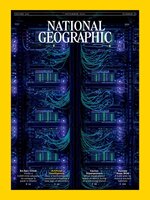 Nov 01 2024
Nov 01 2024
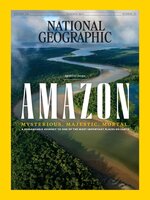 Oct 01 2024
Oct 01 2024
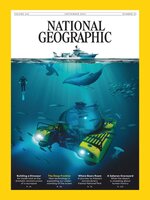 Sep 01 2024
Sep 01 2024
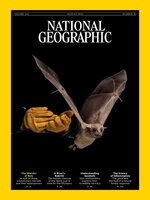 Aug 01 2024
Aug 01 2024
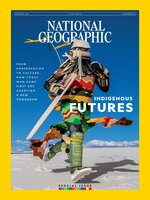 Jul 01 2024
Jul 01 2024
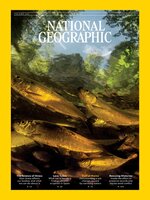 Jun 01 2024
Jun 01 2024
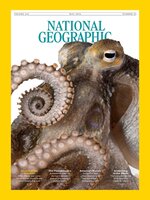 May 01 2024
May 01 2024
 Apr 01 2024
Apr 01 2024
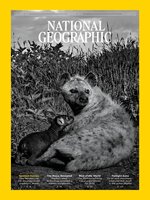 Mar 01 2024
Mar 01 2024
 Feb 01 2024
Feb 01 2024
 Jan 01 2024
Jan 01 2024
 Dec 01 2023
Dec 01 2023
 Nov 01 2023
Nov 01 2023
 Oct 01 2023
Oct 01 2023
 Sep 01 2023
Sep 01 2023
 Aug 01 2023
Aug 01 2023
 Jul 01 2023
Jul 01 2023
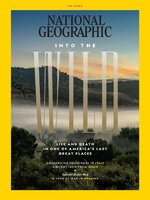 Jun 01 2023
Jun 01 2023
 May 01 2023
May 01 2023
 Apr 01 2023
Apr 01 2023
 Mar 01 2023
Mar 01 2023
 Feb 01 2023
Feb 01 2023
